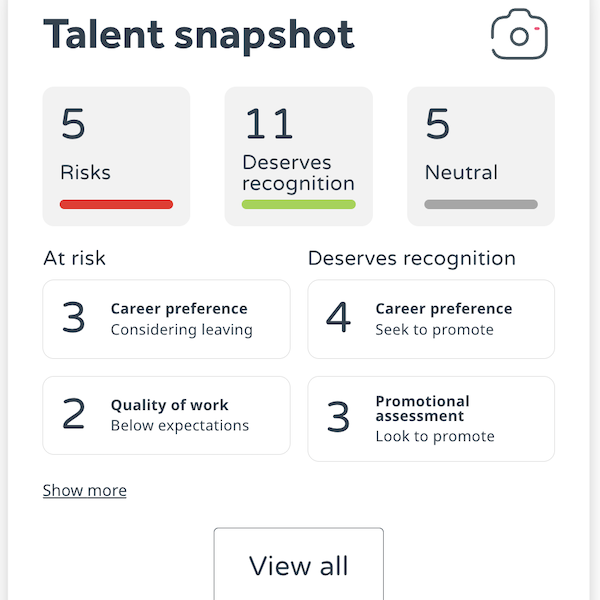This blog was written and contributed to WeThrive by Becky Hesilrige.
Millennials, baby boomers, gen X and gen Z. According to the media, we are in the midst of generational war, with millennials frequently at the centre. Whether they are accused of eating too many avocados, being lazy and entitled or too idealistic, millennials generally get a bad rap in the news.
However, governmental research states that by 2020 millennial workers will make up 50% of the UK workforce, which is expected to rise to 75% by 2025.
So to get the most out of this growing workforce, it is important that employers look beyond the headlines and negative stereotypes to fully understand what makes a millennial tick.
What is a Millennial?
With so many generational titles being thrown around today, let’s start at the beginning by defining what (or who) a millennial is.
Millennials, sometimes referred to as gen Y, were born between 1981 and 1996. They have grown up during a period of rapid technological advancement alongside significant political, social and economic change, often resulting in the following traits:
Digitally native
Millennials are our very first digitally native generation; they were born at the cusp of the internet, computers and mobiles phones entering the mainstream, and have grown up witnessing a rapid evolution in both personal and professional technology.
Unsurprisingly, this means millennials are fairly obsessed with tech, with studies finding that they check their phones 150 times each day. They are also far more interested in brands such as Netflix, YouTube and Tesla compared to brands that are less tech-focused.
Highly adaptable
Millennials’ uptake and interest in technology would naturally make them adaptable. However, they have also had to learn to adapt to the changing environments that they live in.
This is a generation that grew up in an era of constant change; student debt, financial crisis and recession have all resulted in an unpredictable world for millennials.
Socially conscious
Millennials are a motivated generation, they passionately care about causes related to climate change and social equality. Naturally, this will spill over into their work, meaning that millennials crave meaning in both their personal and professional lives.
In fact, 75 per cent of millennials would take a decrease in salary to work for a more socially responsible company, and 76 per cent consider a company’s social and environmental commitments before deciding where to work.
Cynical of loyalty
Unfortunately, millennials have a reputation for not being particularly loyal to their employer. For example, Deloitte found that 43 per cent of millennials plan to leave their current jobs within two years.
Millennials have grown up surrounded by redundancies and business closures. Not only does this mean their frame of reference is completely different from previous generations, but also makes them question why they should be loyal to an employer when they are frequently questioning job security.
So, how do you keep millennials engaged and happy in the workplace?
Regular feedback
Recent studies found that over 74 per cent of millennials feel “in the dark” over how they are performing at work, with 40 per cent wanting to receive weekly feedback from their managers. This is unsettling for a generation that is used to frequent and immediate sources of information.
Schedule regular catch-ups
The first step in offering feedback is simply to set a regular time to catch up with your employees. Aim to keep these sessions as regular as possible, at a set date, time and even follow a consistent schedule.
Be specific
General feedback will always be useful for employees. However, showing specific examples makes your input far more actionable and gives you the opportunity to talk through more tactical improvements, as opposed to high-level and strategic ones.
Share knowledge and resources
Take your feedback to the next level by offering knowledge and resources that will support your employees in implementing changes. If you come across a particularly useful report or webinar, share it with your employees and be available to discuss it with them.
Work-life balance
According to the 2016 Millennial Survey by Deloitte, 16.8 per cent of millennials evaluate career opportunities by the work-life balance. For many millennials success is owning how and when they have to work; allowing them time to focus on their personal development and interests.
Flexitime
For roles that aren’t restricted to the regular 9-5 working hours, offer employees the option to start earlier or later and complete their full working hours on a schedule that suits them. This is invaluable for employees with families or an active life outside of work.
Remote working
Less time commuting, a more comfortable, focused working environment and increased flexibility? For many millennials, remote working offers the dream professional lifestyle. Not only does remote working offer a healthier work-life balance, but it also proves to employees that they are trusted and valued by their employer.
Wellbeing support
As an employer, it is your responsibility to ensure your employees’ physical and emotional wellbeing is supported in the workplace. Millennials, in particular, have a strong focus on improving mental health and ensuring the workplace does not affect their well being negatively.
Mental health leave
If an employee is suffering from anxiety, depression, or are generally overwhelmed, encourage them to use their sick leave to take a break. Not only will this prove that you are an understanding, empathetic employer, but it will also support your workforce in remaining engaged and recharged.
Health benefits
Businesses who are offering benefits that address physical and mental well being through wellness programs, company activities and flexibility will have a head start in engaging with millennials. Examples include subsidised gym membership, yoga classes and wellbeing days.
Healthy working environment
Toxic work environments naturally take their toll on the individual employee, so ensure that your business strategy addresses any behaviour that could affect a healthy working environment. You can even monitor employee satisfaction and wellbeing through regular employee engagement surveys that encourage feedback.
Career growth
We have established that millennials will not naturally feel loyal to a company that is not supporting their needs. So offer them opportunities to learn, develop their skills and progress in their career within your business.
Internal promotions
Before posting that job ad on a recruitment website, consider the talent that you already have within your business and how it can be nurtured through internal promotion. There are various benefits to internal promotion, such as familiarity with your business, but employees will also see that you truly value their development, knowledge and expertise.
A bright future
Conversations regarding promotion can be difficult for an employee to initiate, so keep this dialogue open and flowing. Let your employees know that you view them as the future of your business, and help them to progress through the use of career plans, KPIs and SMART goals.
Innovation
By now we’re well aware that millennials love technology, so be one of the exciting, innovative brands that this generation wants to work for. Consider social media, automation systems and employee engagement surveys. Long term, innovation encourages more bright ideas and a smarter way of working in your business.
It’s not all about millennials
By now we hope you have a much fuller understanding of how to cater for millennials in the workplace and are feeling positive about this growing workforce. It is important to remember that while the suggestions in this post are tailored towards millennials, by implementing just a few you will be making positive improvements that will benefit all of your employees and keep your business ahead of the curve.
About WeThrive
Employee Engagement, Evolved
WeThrive is the agile employee engagement platform that uncovers how your people truly feel, enabling managers to create highly effective teams, increase employee retention and employee wellbeing and deliver better business results.
At organisation, team or individual level WeThive’s unique 4Cmodel leverages the latest psychological understanding to quickly and easily deliver insights, actions and learning content to help your managers become better managers, creating a high performance culture and improving business results. UK based, WeThrive has an average 91% employee engagement survey completion rate and to date has made over 5000 company-wide recommendations.


